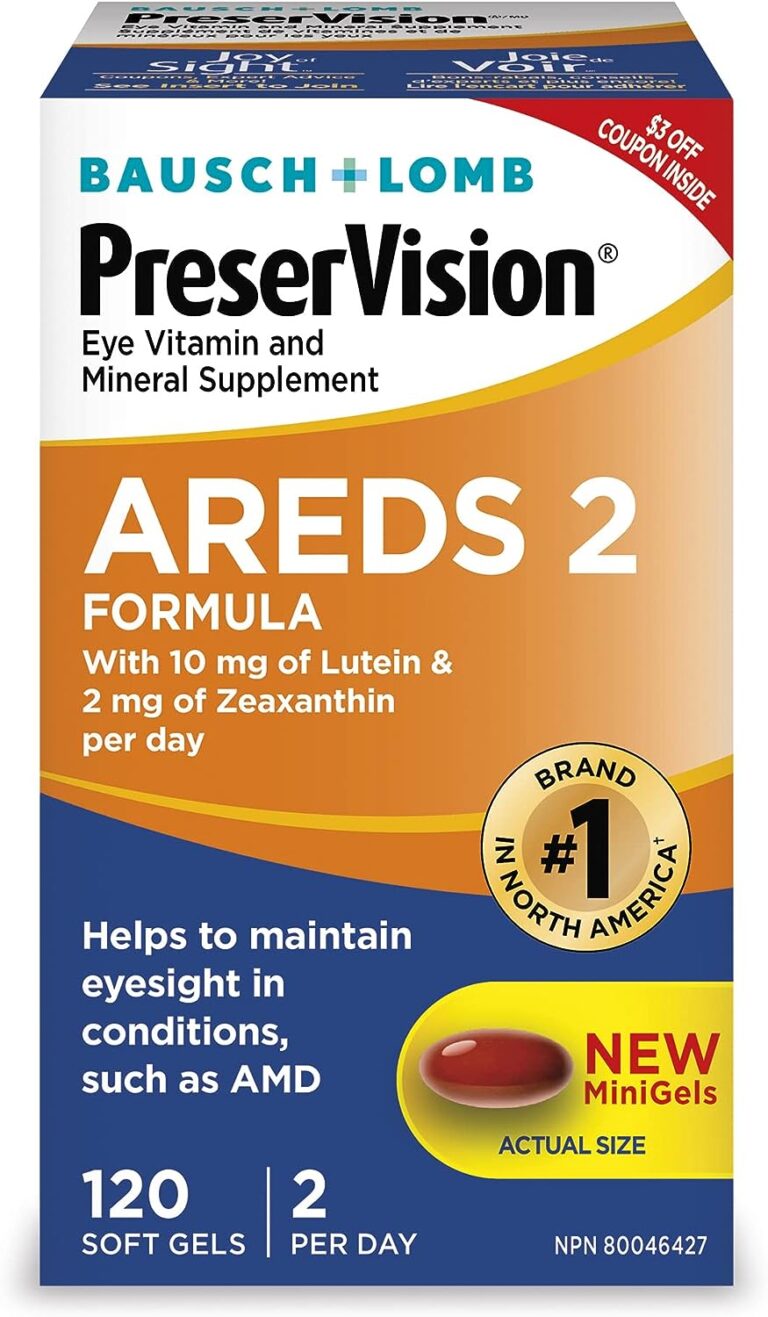Understanding the Importance of Vitamins and Supplements
Discover the importance of vitamins and supplements for overall well-being. Learn about their benefits, risks, and how to choose the right ones for your needs.
In today’s fast-paced and hectic world, it can be challenging to maintain a healthy and balanced lifestyle. That’s where vitamins and supplements come in. These tiny powerhouses pack a punch when it comes to improving our overall well-being. From boosting our immune system to supporting healthy hair and skin, vitamins and supplements are essential for filling in the nutritional gaps in our diets. But before you start popping pills, it’s crucial to understand the potential benefits and risks associated with these products. In this article, we will explore the role of vitamins and supplements in health maintenance, guide you on choosing the right ones for your needs, and shed light on different types of supplements available in the market. So, grab your favorite beverage, sit back, and let’s dive into the fascinating world of vitamins and supplements together.
Exploring the Role of Vitamins and Supplements in Health Maintenance
Overview of vitamins and supplements
Vitamins and supplements play a crucial role in maintaining optimal health. They are designed to complement a balanced diet and provide the necessary nutrients that may be lacking in our regular meals. While a healthy diet should ideally provide us with all the vitamins and minerals we need, factors such as busy lifestyles, dietary restrictions, and certain health conditions can make it challenging to achieve this goal. That’s why the use of vitamins and supplements can be a helpful way to bridge the nutrient gap and support overall health.
How vitamins and supplements support overall health
Vitamins and supplements have various functions in the body, all of which contribute to our overall health and well-being. They are involved in important processes such as energy production, immune function, cell growth and repair, and maintaining healthy organ systems. By ensuring that our bodies receive an adequate supply of these essential nutrients, we can optimize our health and reduce the risk of developing certain deficiencies or health concerns.
The impact of vitamin deficiencies
Vitamin deficiencies can have a significant impact on our health and can lead to various health problems. For example, a deficiency in vitamin C can weaken the immune system, making us more prone to infections and illnesses. Similarly, a lack of vitamin D can affect bone health and increase the risk of conditions such as osteoporosis. It is important to recognize the signs of vitamin deficiencies and take appropriate measures to address them, which may include incorporating supplements into our daily routine.
Supplements and their role in filling nutrient gaps
Supplements are designed to supplement our diet and fill in any nutrient gaps that may exist. They commonly come in the form of capsules, tablets, powders, or liquids and contain concentrated amounts of vitamins, minerals, and other beneficial substances. Supplements can be especially beneficial for individuals with specific dietary requirements, such as vegans or those with food allergies, as they can provide the necessary nutrients that may be lacking in their diets. It is important to choose high-quality supplements and consult with a healthcare professional before starting any new regimen.
The Benefits and Risks of Taking Vitamins and Supplements
Benefits of taking vitamins and supplements
Taking vitamins and supplements can have numerous benefits for our overall health. Among the many advantages they provide, some key benefits include improved energy levels and mood, enhanced immune function, and a reduced risk of chronic diseases. By ensuring that our bodies have an adequate supply of essential vitamins and minerals, we can experience improved well-being and better overall health.
Improved energy levels and mood
One of the significant benefits of taking vitamins and supplements is increased energy levels. B vitamins, in particular, play a crucial role in energy production within the body, helping to convert the food we eat into usable energy. By ensuring an adequate intake of B vitamins, we can combat fatigue and maintain optimum energy levels throughout the day.
Additionally, certain supplements, such as omega-3 fatty acids, have been shown to support a healthy mood. Omega-3s are essential fats that play a vital role in brain function and have been linked to improved mental well-being. By incorporating omega-3 supplements into our routine, we may experience enhanced mood and a better sense of emotional balance.
Enhanced immune function
Vitamins and supplements can also support a healthy immune system, which is our body’s defense against illness and infection. Immune-boosting vitamins such as vitamin C and vitamin D are well-known for their role in supporting immune function. These vitamins help stimulate the production of immune cells and enhance their function, thereby reducing the risk of getting sick or experiencing more severe symptoms when exposed to viruses or bacteria.
Reduced risk of chronic diseases
Another important benefit of taking vitamins and supplements is a reduced risk of chronic diseases. Many chronic conditions, such as heart disease, osteoporosis, and certain types of cancer, can be influenced by our nutrient intake. By incorporating supplements that contain antioxidants, such as vitamin E and vitamin C, we can help protect our cells from oxidative damage and lower the risk of developing these diseases.
Potential risks and side effects
While the benefits of taking vitamins and supplements are numerous, it is important to be aware of potential risks and side effects. In general, when taken as directed and in appropriate dosages, vitamins and supplements are considered safe for most individuals. However, certain supplements can interact with medications or have adverse effects in high doses or if taken for an extended period. It is always advisable to consult with a healthcare professional or registered dietitian before starting any new supplements, especially if you have underlying health conditions or are taking medication.
Interactions with medications
Certain supplements can interact with medications, either by reducing their effectiveness or increasing the risk of side effects. For example, St. John’s wort, a herbal supplement commonly used to help with mood disorders, can interfere with the functioning of some antidepressant medications. Additionally, supplements such as fish oil and vitamin E may increase the risk of bleeding when taken with blood-thinning medications.
It is essential to disclose all supplements you are taking to your healthcare provider to ensure there are no potential interactions with your medications. They can guide you on the appropriate timing and dosage of both your medications and supplements to minimize any risks.
Dosage considerations
When it comes to taking vitamins and supplements, it is crucial to follow the recommended dosages provided by the supplement manufacturer or as advised by your healthcare professional. While some nutrients can be beneficial in higher doses, others can have adverse effects if taken excessively. It is always best to aim for a balance and avoid exceeding the recommended daily intake, as more does not necessarily mean better. If you are unsure about the dosage or need personalized advice, consulting with a healthcare professional or registered dietitian can help ensure you are getting the right amount of nutrients for your specific needs.
A Guide to Choosing the Right Vitamins and Supplements for Your Needs
Understanding your specific health needs
Before selecting any vitamins or supplements, it is important to understand your specific health needs. Assessing your diet, lifestyle, and any existing health conditions can help you identify potential nutrient deficiencies or areas where additional support may be beneficial. For example, if you follow a vegan diet, you may need to consider vitamin B12 supplementation since this nutrient is primarily found in animal products.
Consulting with a healthcare professional or registered dietitian
If you are unsure about which vitamins or supplements are right for you, it is always best to consult with a healthcare professional or registered dietitian. They can assess your individual needs, review your medical history, and provide personalized recommendations based on the most up-to-date research and evidence. Working with a professional ensures that your supplementation plan aligns with your specific health goals and does not interfere with any existing treatments or medications.
Choosing reputable brands and products
When it comes to selecting vitamins and supplements, it is important to choose reputable brands and products. The supplement industry is not regulated as strictly as pharmaceuticals, so quality can vary significantly among different brands. Look for well-established companies that adhere to good manufacturing practices (GMP) and undergo regular quality testing to ensure the purity, potency, and safety of their products.
Considering quality certifications
To further ensure the quality and safety of vitamins and supplements, you can look for certifications from independent third-party organizations. These certifications, such as USP (United States Pharmacopeia) Verified or NSF International, indicate that the product has undergone rigorous testing and meets specific quality standards. While certification is not a guarantee of effectiveness, it can provide reassurance about the product’s quality and compliance with industry standards.
Reading and understanding supplement labels
Supplement labels can provide valuable information about the product’s contents, recommended dosage, and any potential allergens or warnings. It is important to read and understand these labels before purchasing or consuming a supplement. Pay attention to the ingredient list, the form of the nutrient (e.g., vitamin D3 or D2), and the serving size. It is also helpful to look for additional information, such as the presence of additives or fillers, to ensure you are selecting the most suitable product for your needs.
Finding the right dosage and form
Once you have selected a vitamin or supplement, it is important to find the right dosage and form that works for you. Dosages can vary depending on age, gender, health conditions, and specific nutrient needs. Your healthcare professional or registered dietitian can help determine the appropriate dosage based on your individual requirements.
Additionally, some vitamins and minerals are available in different forms, such as tablets, capsules, powders, or liquids. Consider your personal preferences, ease of use, and any specific dietary restrictions when choosing the form that suits you best. For example, if swallowing pills is difficult, you may prefer a liquid or powder form that can be mixed into a beverage.
Different types of Supplements
Introduction to various types of supplements
Supplements come in various forms and types, each designed to fulfill specific nutritional needs or target particular health concerns. Understanding the different types of supplements can help you make informed decisions about which ones may be appropriate for you.
Multivitamins and minerals
Multivitamins and minerals are one of the most commonly used types of supplements. They contain a combination of vitamins and minerals in varied amounts, aimed at providing a broad spectrum of nutrients. Multivitamins can be beneficial for individuals who may have nutrient deficiencies or for those who want to ensure optimal intake of essential vitamins and minerals.
Herbal and botanical supplements
Herbal and botanical supplements are derived from plants and are used for various health purposes. Examples include echinacea, ginseng, ginger, and turmeric. These supplements are often marketed for their potential to support specific health conditions or promote overall well-being. However, it is important to note that herbal supplements are not regulated by the FDA in the same way as prescription medications. If you are considering herbal supplements, consult with a healthcare professional or registered dietitian to ensure they are safe and appropriate for your needs.
Probiotics and digestive enzymes
Probiotics and digestive enzymes are supplements designed to support gut health and improve digestion. Probiotics are beneficial bacteria that help maintain a balanced gut microbiome, while digestive enzymes aid in the breakdown and absorption of nutrients. These supplements can be especially beneficial for individuals with digestive issues, such as bloating, gas, or irritable bowel syndrome (IBS).
Omega-3 fatty acids
Omega-3 fatty acids are essential fats that have numerous health benefits. They are commonly found in fatty fish like salmon, mackerel, and sardines. However, many people do not consume enough omega-3s through their diet alone, making supplementation a popular option. Omega-3 supplements have been shown to support heart health, brain function, and joint health. They are available in various forms, such as fish oil capsules or algae-based supplements for vegetarians and vegans.
Vitamin D supplements
Vitamin D is primarily synthesized in our skin when exposed to sunlight. However, many people do not receive enough sun exposure or have limited dietary sources of this vitamin. Vitamin D plays a crucial role in calcium absorption and utilization, making it vital for maintaining healthy bones and teeth. Supplementing with vitamin D can be beneficial, particularly for individuals who live in areas with limited sunlight or have darker skin, which can impact the production of vitamin D.
Calcium and magnesium supplements
Calcium and magnesium are minerals that play essential roles in maintaining healthy bones, muscles, and nerves. While these minerals can be obtained through diet, some individuals may require additional supplementation to meet their needs, especially those with lactose intolerance, certain medical conditions, or limited access to calcium-rich foods. Calcium and magnesium supplements are available in various forms, including tablets, chews, and powders.
Iron and other mineral supplements
Iron is a crucial mineral involved in oxygen transport and energy production. Iron deficiency is a common nutritional deficiency, particularly among women of childbearing age. Iron supplements can help correct deficiencies and prevent or treat conditions such as iron-deficiency anemia. It is important to consult with a healthcare professional or registered dietitian before starting iron supplementation, as excessive iron intake can have adverse effects.
Additionally, there are other mineral supplements available, such as zinc, selenium, and chromium, which are necessary for various bodily functions and can provide support in certain situations.
Specialty supplements for specific health conditions
In addition to the general types of supplements mentioned above, there are also specialty supplements that target specific health conditions. These may include supplements for joint health, cognitive function, cardiovascular health, or weight management. Specialty supplements often contain a combination of nutrients, herbal extracts, or other ingredients that are believed to offer targeted benefits. It is important to consider your individual health needs and consult with a healthcare professional or registered dietitian before considering specialty supplements.
Understanding the Role of Vitamin A
Overview of vitamin A and its functions in the body
Vitamin A is a fat-soluble vitamin that is important for various functions in the body. It plays a crucial role in vision health, immune function, and cellular growth and development. There are two main forms of vitamin A: retinoids and carotenoids. Retinoids are found in animal-based foods, while carotenoids are found in plant-based foods and are converted to vitamin A in the body.
Benefits for vision health
Vitamin A is essential for maintaining good vision health. It is a key component of the protein rhodopsin, which is responsible for enabling the retina to detect and respond to light. Adequate vitamin A intake can help prevent conditions such as night blindness and age-related macular degeneration, a leading cause of vision loss in older adults.
Importance in immune function
Vitamin A plays a significant role in supporting a healthy immune system. It helps maintain the integrity and function of the skin and mucosal tissues, which act as a physical barrier against pathogens. Vitamin A also plays a role in the production and function of immune cells, helping to protect against infections and support overall immune function.
Role in cellular growth and development
Vitamin A is crucial for cell growth and development, particularly during periods of rapid growth, such as childhood and pregnancy. It is involved in the process of cell differentiation, where immature cells become specialized for specific functions. Vitamin A is necessary for the growth and maintenance of epithelial cells, which line various organs and body systems, including the skin, respiratory tract, and gastrointestinal tract.
Sources of vitamin A
Vitamin A can be obtained from both animal-based and plant-based sources. Animal sources of vitamin A include liver, fish, eggs, and dairy products. Plant-based sources include fruits and vegetables that are rich in carotenoids. Examples of carotenoid-rich foods include carrots, sweet potatoes, spinach, and kale. It is important to note that the body can convert carotenoids to retinoids, but this conversion is not always efficient. Therefore, individuals who follow a predominantly plant-based diet may need to pay closer attention to their vitamin A intake and consider supplements if necessary.
Recommended daily intake and considerations
The recommended daily intake of vitamin A varies depending on age, gender, and life stage. For adults, the recommended dietary allowance (RDA) is 900 micrograms (mcg) for men and 700 mcg for women. Pregnant and breastfeeding women have higher requirements, with an RDA of 770-1,300 mcg, depending on the stage of pregnancy or lactation.
It is important to note that excessive intake of vitamin A can be toxic and lead to adverse health effects. High-dose supplements should be taken under the guidance of a healthcare professional. Additionally, individuals who are pregnant or planning to become pregnant should consult with their healthcare provider before taking vitamin A supplements, as high doses can be harmful to the developing fetus.
Exploring the Benefits and Functions of Vitamin B Complex
Introduction to the B vitamins and their functions
The B vitamins, collectively known as vitamin B complex, are a group of water-soluble vitamins that play crucial roles in energy production, metabolism, and overall wellness. The B vitamins include thiamin (B1), riboflavin (B2), niacin (B3), pantothenic acid (B5), pyridoxine (B6), biotin (B7), folate (B9), and cobalamin (B12). Each B vitamin has unique functions and benefits in the body.
Energy production and metabolism
The B vitamins are essential for energy production and metabolism. They help convert the carbohydrates, fats, and proteins we consume into usable energy for our cells. Specifically, thiamin, riboflavin, niacin, pantothenic acid, and pyridoxine are involved in various enzymatic reactions that facilitate the breakdown of food and energy production. Adequate intake of these B vitamins is crucial for maintaining optimal energy levels and supporting the body’s metabolic processes.
Support for brain health and cognitive function
Certain B vitamins, such as vitamin B6, vitamin B12, and folate, play important roles in brain health and cognitive function. Vitamin B6 is involved in the production of neurotransmitters, chemicals that transmit signals between nerve cells and help regulate mood, concentration, and memory. Vitamin B12 and folate are necessary for the production of red blood cells and the maintenance of the nervous system. Deficiencies in these B vitamins can lead to cognitive decline, memory problems, and mood disturbances.
Maintenance of healthy skin, hair, and nails
Several B vitamins contribute to the maintenance of healthy skin, hair, and nails. For example, biotin is well-known for its role in supporting hair and nail growth, while niacin helps promote a healthy complexion and can alleviate symptoms of certain skin conditions like acne. Additionally, adequate intake of riboflavin and pyridoxine is necessary for the maintenance of healthy skin.
Food sources and supplementation
The B vitamins are found naturally in a variety of foods. Good food sources include whole grains, legumes, nuts, seeds, leafy green vegetables, dairy products, eggs, and meats. By consuming a balanced diet that includes a variety of these foods, you can meet your body’s B vitamin needs. However, certain populations, such as vegetarians, vegans, or individuals with certain medical conditions, may have higher requirements or difficulty obtaining adequate amounts through diet alone. In such cases, supplementation under the guidance of a healthcare professional may be beneficial.
Recommended daily intakes and potential risks
The recommended daily intakes for the B vitamins vary depending on the specific vitamin and individual factors such as age, gender, and life stage. For example, the recommended dietary allowance (RDA) for thiamin is 1.2-1.4 milligrams (mg) for adults, while the RDA for folate is 400-600 micrograms (mcg) for most adults. Pregnant women and individuals with certain medical conditions may require higher amounts of specific B vitamins.
When it comes to supplementation, it is important to follow the recommended dosages and guidelines provided by the supplement manufacturer or as advised by your healthcare professional. While deficiencies in B vitamins can have adverse health effects, excessive intake of certain B vitamins, such as niacin or pyridoxine, can lead to toxicity and cause symptoms such as flushing, tingling, or nerve damage. Working with a healthcare professional or registered dietitian can help ensure you are taking the appropriate dosage of B vitamin supplements for your specific needs.
Understanding the Importance of Vitamin C
Overview of vitamin C and its role in the body
Vitamin C, also known as ascorbic acid, is a water-soluble vitamin with powerful antioxidant properties. It is essential for numerous functions in the body and offers a wide range of health benefits. Among its many roles, vitamin C is involved in collagen synthesis, immune support, and heart health.
Antioxidant properties and immune support
One of the primary roles of vitamin C is to act as a potent antioxidant in the body. Antioxidants help protect our cells from damage caused by harmful molecules called free radicals. By neutralizing these free radicals, vitamin C helps reduce oxidative stress and inflammation, which are risk factors for chronic diseases.
Vitamin C also plays a vital role in supporting the immune system. It helps stimulate the production of white blood cells, which are responsible for fighting off infections and pathogens. Adequate vitamin C intake can help strengthen the immune response, reduce the severity and duration of common illnesses, and support overall immune health.
Collagen synthesis and healthy skin
Vitamin C is necessary for the synthesis of collagen, a protein that provides structure to our skin, bones, tendons, and other connective tissues. Collagen is essential for maintaining healthy skin, promoting wound healing, and preventing the signs of aging, such as wrinkles and sagging skin. By ensuring an adequate intake of vitamin C, we can support collagen production and maintain the health and vitality of our skin.
Potential benefits for heart health
Research suggests that vitamin C may have potential benefits for heart health. As an antioxidant, vitamin C helps protect the endothelial cells that line the blood vessels from oxidative damage. It also has anti-inflammatory properties that can help reduce the risk of developing heart disease. Adequate vitamin C intake has been associated with a lower risk of high blood pressure, reduced LDL cholesterol levels, and improved blood vessel function.
Food sources and supplementation options
Vitamin C is found in a wide variety of fruits and vegetables. Citrus fruits, such as oranges and grapefruits, are particularly rich in vitamin C. Other excellent food sources include kiwi, strawberries, red peppers, broccoli, and Brussels sprouts. By incorporating these foods into your diet, you can ensure a natural and consistent intake of vitamin C.
In cases where dietary sources may be limited or insufficient, vitamin C supplementation can be beneficial. Supplements are available in various forms, including tablets, capsules, chewables, powders, and liquids. It is important to choose a reputable brand and follow the recommended dosages provided. Excessive vitamin C supplementation can lead to digestive upset or, in rare cases, kidney stones.
Optimal daily intake and considerations
The recommended dietary allowance (RDA) for vitamin C varies depending on age, gender, and life stage. For adults, the RDA is 75-90 milligrams (mg) for women and 90 mg for men. During periods of illness, stress, or when exposure to germs is high, some individuals may benefit from higher doses of vitamin C, up to 1,000 mg per day, to support immune function. However, it is important to note that mega-dose supplementation is not recommended for extended periods without medical supervision.
Individuals who smoke, have certain medical conditions, or are undergoing specific treatments may have higher vitamin C requirements. It is always advisable to consult with a healthcare professional or registered dietitian to determine the optimal daily intake of vitamin C for your specific needs.
Exploring the Benefits of Vitamin D for Bone Health
Overview of vitamin D and its functions
Vitamin D is a unique nutrient that can be obtained through sunlight exposure and certain foods. It plays several critical roles in the body, with one of the most well-known functions being its importance for bone health. Vitamin D works together with calcium and phosphorus to build and maintain strong bones and teeth.
Importance of vitamin D for bone health
Vitamin D is essential for bone health as it helps regulate calcium absorption and utilization in the body. Without sufficient vitamin D, our bodies may struggle to absorb calcium from the foods we eat, which can lead to weakened bones and an increased risk of conditions such as osteoporosis or osteomalacia.
Role in calcium absorption and utilization
Vitamin D enhances the absorption of calcium from the small intestine, ensuring that sufficient amounts of this vital mineral enter the bloodstream. It also helps regulate calcium levels in the blood, ensuring that calcium is available for building and maintaining strong bones and teeth.
Potential benefits for immune function
Emerging research suggests that vitamin D may also play a role in supporting immune function. Adequate vitamin D levels have been associated with a reduced risk of respiratory tract infections, including the common cold and flu. Vitamin D helps modulate the immune response and promotes the production of antimicrobial peptides, which are natural substances that help fight off infections.
Sun exposure and dietary sources
The primary source of vitamin D is sunlight exposure. When our skin is exposed to sunlight, it produces vitamin D3, also known as cholecalciferol, which is then converted into its active form in the liver and kidneys. However, factors such as geographic location, time of year, skin pigmentation, and the use of sunscreen can impact our ability to produce vitamin D through sunlight alone.
Dietary sources of vitamin D include fatty fish like salmon and mackerel, fortified dairy products, eggs, and some mushrooms. While it may be challenging to obtain sufficient vitamin D through diet alone, a combination of sun exposure and dietary sources can help maintain adequate levels of this essential nutrient.
Vitamin D supplementation guidelines
In cases where sun exposure and dietary intake are limited, vitamin D supplementation may be necessary. The recommended daily intake of vitamin D varies depending on age, gender, and life stage. For most adults, the recommended dietary allowance (RDA) is 600-800 international units (IU) per day. However, individuals with certain medical conditions or at high risk for vitamin D deficiency may require higher doses under the guidance of a healthcare professional.
It is important to note that excessive intake of vitamin D can be harmful, leading to vitamin D toxicity or hypercalcemia. It is crucial to follow the recommended dosages and guidelines provided by the supplement manufacturer or as advised by your healthcare professional. Regular monitoring of vitamin D levels through blood tests can help ensure that you are maintaining optimal levels within the recommended range.
Understanding the Role of Vitamin E
Overview of vitamin E and its antioxidant effects
Vitamin E is a fat-soluble vitamin with strong antioxidant properties. It helps protect our cells from oxidative damage caused by free radicals, which are unstable molecules that can contribute to chronic inflammation, aging, and various diseases. Vitamin E exists in several forms, with alpha-tocopherol being the most biologically active and commonly studied.
Protection against free radical damage
One of the primary roles of vitamin E is to protect our cells from oxidative damage caused by free radicals. By neutralizing these harmful molecules, vitamin E helps minimize oxidative stress and inflammation, which can contribute to the development of chronic diseases such as cardiovascular disease, cancer, and neurodegenerative disorders.
Benefits for heart health and circulation
Vitamin E has been studied extensively for its potential benefits to heart health. It helps prevent the oxidation of LDL cholesterol, the “bad” cholesterol, which can contribute to the formation of plaque in the arteries. By reducing oxidative stress and inflammation, vitamin E promotes healthy blood vessel function and improves circulation. However, it is important to note that supplementing with vitamin E alone may not provide the same benefits as obtaining vitamin E from a balanced and varied diet.
Potential benefits for skin health
Vitamin E has long been associated with skin health benefits. Its antioxidant properties help protect the skin from damage caused by environmental factors, such as UV radiation and pollution. Vitamin E also helps improve skin hydration, elasticity, and overall appearance. It is commonly found in skincare products and is often used to treat conditions such as dryness, wrinkles, and scars.
Sources of vitamin E
Vitamin E can be found naturally in a variety of foods. Good food sources include almonds, sunflower seeds, spinach, kale, avocados, and vegetable oils (such as sunflower, safflower, and wheat germ oil). By incorporating these foods into your diet, you can ensure an adequate intake of vitamin E.
Recommended daily intake and potential risks
The recommended dietary allowance (RDA) for vitamin E varies depending on age, gender, and life stage. For most adults, the RDA is 15 milligrams (mg) of alpha-tocopherol per day. Pregnant and breastfeeding women have slightly higher requirements.
While vitamin E deficiency is rare in healthy individuals, excessively high doses of supplemental vitamin E can pose risks. High doses can interfere with blood clotting and increase the risk of bleeding. It is important to follow the recommended dosages provided by the supplement manufacturer or as advised by your healthcare professional. If you are taking blood-thinning medications or have any bleeding disorders, consult with your healthcare provider before starting vitamin E supplementation.
Exploring the Benefits of Vitamin K
Introduction to vitamin K and its functions
Vitamin K is a fat-soluble vitamin that plays a crucial role in blood clotting and bone health. It exists in several forms, with vitamin K1 (phylloquinone) being the primary form obtained through dietary sources, and vitamin K2 (menaquinone) being produced by bacteria in the gut.
Importance in blood clotting and bone health
One of the main functions of vitamin K is to help with blood clotting. It is essential for the production of proteins involved in the clotting process, ensuring that our blood can effectively form clots to prevent excessive bleeding. Individuals with vitamin K deficiency may experience prolonged bleeding or have an increased risk of excessive bleeding.
Vitamin K is also vital for maintaining healthy bones and preventing bone loss. It helps activate proteins that are involved in bone mineralization and the regulation of calcium. Adequate vitamin K intake is necessary for optimal bone density and reducing the risk of osteoporosis and fractures.
Potential role in heart health
Emerging research suggests that vitamin K may play a role in heart health and vascular function. It is believed that vitamin K helps regulate calcium metabolism, preventing calcium from depositing in the arteries and promoting healthy blood vessel function. While further research is needed to fully understand the implications, some studies have shown an association between higher vitamin K intake and reduced risk of cardiovascular disease.
Food sources and supplementation options
Vitamin K1 is predominantly found in green leafy vegetables such as kale, spinach, broccoli, and Brussels sprouts. It is also present in some vegetable oils and nuts. Vitamin K2, on the other hand, is produced by bacteria in the gut and can also be found in fermented foods like cheese and natto (fermented soybeans).
While vitamin K deficiency is rare in healthy individuals, certain factors, such as antibiotic use or specific medical conditions, can affect vitamin K absorption and utilization. In such cases, supplementation may be necessary. It is important to discuss your specific needs and potential supplementation with a healthcare professional or registered dietitian.
Recommended daily intake and considerations
The recommended dietary allowance (RDA) for vitamin K varies depending on age, gender, and life stage. For adults, the RDA is 90-120 micrograms (mcg) per day for men and 90-90 mcg per day for women. Pregnant and breastfeeding women may have slightly higher requirements.
It is essential to note that excessive intake of vitamin K through supplementation is generally not recommended unless prescribed by a healthcare professional. Vitamin K can interact with certain medications, such as blood thinners, and affect their effectiveness. If you are taking any medications or have specific health concerns, consult with your healthcare provider before starting vitamin K supplementation. They can provide personalized advice based on your individual needs.








